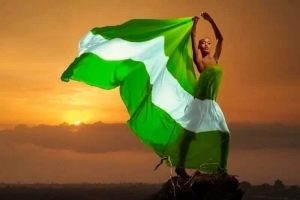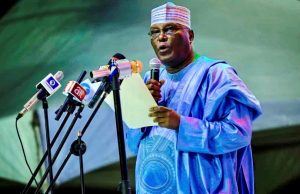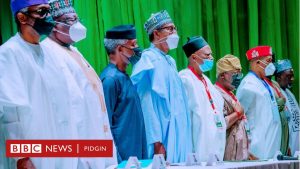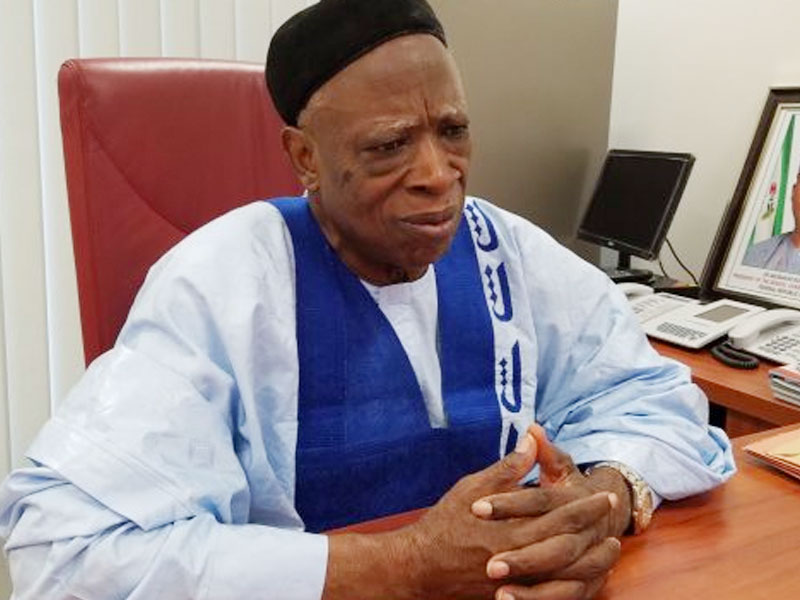Like the sky, all eyes are on Nigeria’s ruling party – the All Progressives Congress, (APC). In the matter of its presidential candidate for the 2023 General Elections, the APC is, of course, the sky and, as the saying goes, if the eye does not look at the sky, where else does it? As long as the party shops for a presidential candidate, all eyes must be on it given what is at stake in presidential powers in a country such as Nigeria.

Taking democracy from an empty show in Nigeria will require an Ataturk but is any of the parties offering any such candidate?
This is more so that the APC has dribbled itself into a much more complicated choice-making position. In addition to having been in power for the past seven years and, therefore, open to tighter scrutiny, it is obviously facing jostling for power within it. Players who could not ordinarily assert themselves can do so now because the incumbent is on his way out. The windfall attitude among governors in particular that any of them can be chosen the way Chief Obasanjo handpicked the late Umaru Yar’Adua is pushing many to try their luck.
Beyond this internal dimension in the politics of selecting a presidential material is the error of allowing its opponent to pick its own presidential candidate before it, thereby compelling the ruling party to find a candidate who is not an Atiku Abubakar. In other words, the People’s Democratic Party, (PDP) and its presidential candidate – Atiku Abubakar – have become the ‘constitutive outside’ of the APC. The theory of the ‘constitutive outside’ asserts that if the self is an ontologically fluid entity, then it can only be known and defined in terms of what it is not. As problematic as it is in social theory, it reigns.
There is thus a profound paradox which the APC does not appear to have been apprised of by its social theorists. That is that it might, consciously or unconsciously, be running on terms dictated to it by its leading opponent, a task obviously compounded by APC’s mistaken purchase for the essentialist ‘dollar rain’ narrative of the PDP process that produced Atiku or the similar singularity that Atiku is the embodiment of corruption. If singularity is a bad framework in social analysis, then it must also be bad in applying it to even our enemies. This is more so that, as everyone knows, there is no Kemal Ataturk among the list of presidential aspirants so far in both the APC and the PDP.

Atiku Abubakar, the emergent APC’s ‘constitutive outside’
How a party with an experienced National Chairman as the APC could have been hoodwinked into the opportunistic hyperactivity isolating 2022 ‘dollar rain’ on delegates when in fact, the trend actually has been with the country is what is baffling critical as opposed to selective observers. In 2011, it was the definitive practice. The late Adamu Ciroma was literarily crying in an interview with Saturday Sun on the eve of the PDP’s convention that year that a party leader could be a party to bribing delegates in a foreign currency. Bribing delegates in foreign currency has been there but the nation has not pretended to be as aghast as it is today. It is an unethical practice but it has been the defining feature. There is every justification to fight it but such a fight must not be selective because we have seen the dangers of selectivity.
It is worrisome that the dangers of this sort of selectivity do not appear to matter to the mainly middle class professionals who revel most in it. But it is such selectivity, for instance, that produced the Buhari administration which is the butt of criticisms today. If Nigeria did not decide in a very unprincipled manner that zoning is a private affair of the PDP, Dr. Goodluck Jonathan would not have become the president of Nigeria in 2011 and Buhari would not have been possible in 2015. In 2015, it would have been a much better groomed Goodluck Jonathan who would have become the president of Nigeria if the North completed its own share of the zoning from 2011 – 2015.
Meanwhile, some of the characters swearing by zoning today were the same characters who popularized the narrative of zoning as something peculiar to the PDP in spite of the costly price some individuals such as the late Dr. Olu Onagoruwa and even Michael Ibru paid to secure zoning before the Abdulsalami military regime removed the provision from the Constitution. It maybe Atiku Abubakar today but it could be a Dele Momodu tomorrow.
As Intervention, for example, has pointed out as early as May 1st, 2022, Atiku Abubakar winning the impending election to become president of Nigeria would amount to the world “admitting another candidate to the category of agentian game changers similar to Gorbachev and the collapse of the USSR, Deng Xiaoping in the turn to ‘neoliberalism with Chinese characteristics’ and Mandela in the collapse of Apartheid/transition to democracy in South Africa, to name just three”. The near impossibility of anyone lumping together a Gorbachev; a Deng Xiaoping and a Mandela should suggest to any serious reader that this sentence can only be another way of speculating the difficulties in Atiku realizing his ambition.

APC mandarins
But the notion of near impossibility here does not derive from an essentialist narrative of Atiku in terms of corruption. It rather derives from a situated reading of his ambition: the fact that no extremely rich Nigerian who has aspired to be president of Nigeria has been able to get it. Alhaji Waziri Ibrahim tried, he never got it. General Shehu Yar’Adua tried, he never got it. Chief MKO Abiola tried, he never got it. That these gentlemen never got it in their own time does not automatically mean another billionaire cannot get it at a different time or context. However, it was important to draw attention to that reality within the larger context of agency and the crisis of crisis.
How the focus shifted to selective labeling is what is difficult to understand at a time when Nigeria should not still be finding it difficult to learn from the intended and unintended consequences of selectivity. And at a time when this country should be tired of lying to itself and being clever by half by now!
Otherwise, Lee Kuan Yew’s contention that “the exuberance of democracy leads to undisciplined and disorderly conditions which are inimical to development” and that “democratic procedures have no intrinsic value” would remain appealing or unimpeachable. Already, democracy in Nigeria since 1999 has been a show without much substance whatsoever. In nearly no realm except the number of handsets has the welfare of the people been an issue. Extreme poverty has soared as looting of the treasury booms.
Against this background, the eyes will remain on the APC as it sorts its self out in terms of a presidential candidate that is a self-evident critique of existing ones in the realms of quality of newness, pedigree and a better banner of hope. But, in all cases, the task at hand is not mob enactment of perceptions of even those we may call our enemies but insisting on free and fair elections by ensuring that the presidential election in particular is monitored by as diverse players as possible. Once the outcome reflects popular convictions, then that is what it is.




























